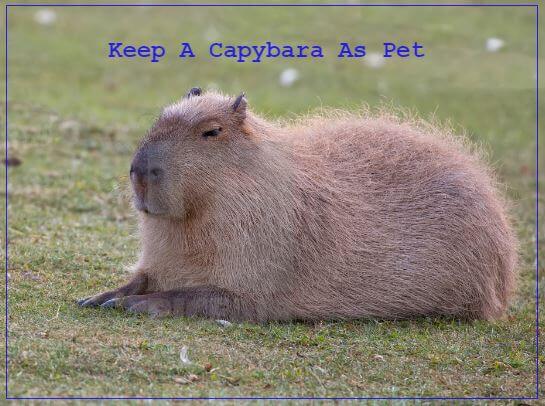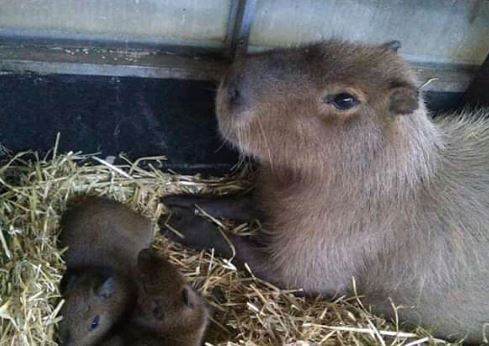If you’ve ever encountered a capybara, the largest rodent in the world, you might have wondered if these adorable creatures emit any particular odor. After all, capybaras are known for their aquatic lifestyle and living in large groups, which could lead to distinctive smells.
In this blog post, we will explore the topic of capybara odor, its causes, and how humans and other animals perceive it. Additionally, we’ll provide some helpful tips for capybara owners on controlling or minimizing their pet’s odor.
Do Capybaras Smell?
Capybaras have a distinct odor, although they may not be as strong or offensive as some other animals. This odor is primarily attributed to the scent glands in various parts of their bodies. Capybaras possess specialized sebaceous glands, particularly the morillo glands located on the top of their heads, and the anal glands situated near their hindquarters.
These glands secrete oils, proteins, and other compounds contributing to the capybara’s natural scent.
Explanation of the Glandular Secretions Responsible for the Capybara’s Odor
Capybaras possess a unique set of glandular secretions contributing to their distinctive scent. The main culprits are the sebaceous and the anal glands. Sebaceous glands throughout their body produce an oily substance that moisturizes their skin and fur. While this oil is odorless, it can mix with bacteria and other substances on the capybara’s skin, resulting in a mild scent.
On the other hand, the anal glands of capybaras secrete a pungent odor that serves several purposes. These glands are found near the anus and play a crucial role in territorial marking and communication. The anal secretions contain a mix of volatile chemicals that act as chemical signals, conveying messages to other nearby capybaras.
Factors Affecting Capybara Odor
Several factors contribute to the intensity of capybara odor. Here are some key influencers:
1. Diet
Capybaras are herbivores feeding on aquatic plants, grasses, and other vegetation. The food they consume can impact their body odor. Certain compounds present in their diet may be excreted through their skin, leading to subtle changes in their scent.
2. Hygiene
Maintaining proper hygiene can greatly influence the odor emitted by capybaras. Regular grooming and bathing help remove excess oils and debris from their fur, reducing the chance of an unpleasant smell. Some capybara owners even incorporate special shampoos or grooming products to control their pet’s odor.
3. Stress Levels
Stress can exacerbate the natural scent of capybaras. When anxious or threatened, capybaras may release more anal secretions, intensifying their odor. A calm and comfortable environment can minimize the smell associated with stress.
Perception of Capybara Odor by Humans and Other Animals
While capybaras may have a distinctive smell, the perception of their odor can vary among different species. Humans, for example, possess a wide range of olfactory sensitivities, and while some individuals may find the scent of capybaras unpleasant, others may barely notice it. The intensity of the odor may also depend on factors such as proximity to the capybara, individual sensitivity, and personal preferences.
As for other animals, the reaction to capybara odor can also differ. Some predators might utilize their sense of smell to detect capybaras, while others may not find the scent particularly significant. It’s important to note that capybaras rely on their odor for social and communication purposes, playing a crucial role in their own species.
Tips for Capybara Owners on Controlling or Minimizing Their Pet’s Odor
If you’re a capybara owner and want to keep your pet’s odor in check, here are some helpful tips:
1. Regular Grooming
Establish a regular grooming routine for your capybara. Use gentle shampoos or grooming products specifically formulated for sensitive skin. Regular brushing can help remove excess oils and debris, keeping their fur clean and fresh.
2. Clean Living Environment
Maintain a clean living space for your capybara. Regularly remove feces, urine, and any soiled bedding from their enclosure. Providing fresh water and ensuring proper ventilation can also contribute to minimizing odors in their environment.
3. Healthy Diet
A balanced and nutritious diet, including odor control, is essential for capybaras’ overall well-being. Consult a veterinarian to ensure your capybara’s diet is appropriate and optimal for its health. A healthy diet can help regulate their body odor.
4. Socialization and Enrichment
Capybaras are social animals and thrive in the presence of others. Ensure your pet has opportunities for socialization and engagement, as this can help reduce stress levels and prevent the overproduction of anal secretions.
5. Veterinary Check-ups
Regular visits to a qualified veterinarian are crucial for maintaining your capybara’s health. They can assess your pet’s overall well-being, offer guidance on odor control, and address any underlying issues contributing to excessive scent.
By implementing these tips, capybara owners can keep their pets’ odor to a minimum, ensuring a pleasant living environment for the capybara and their human companions.
Are capybaras suitable as indoor pets?
Capybaras require ample space, access to water, and a specialized environment to thrive. While they can be kept as pets, they are more commonly found in outdoor enclosures or specialized habitats.
Can capybara odor be completely eliminated?
Capybara odor is a natural aspect of their physiology. While it can be minimized through proper care and hygiene practices, eliminating their scent is unlikely.
Do capybaras have any predators in the wild?
Capybaras have a few natural predators, including jaguars, caimans, and anacondas. Their strong sense of smell helps them detect potential threats in their environment.
Conclusion
Capybaras possess a distinct odor attributed to their glandular secretions, namely the sebaceous and anal glands. The interaction of these secretions with their diet, hygiene, and stress levels contributes to the intensity of the smell.
While the perception of capybara odor varies among species, capybara owners can take proactive steps to control or minimize their pet’s scent through regular grooming, a clean living environment, a healthy diet, socialization, and regular veterinary check-ups. With proper care and attention, capybara owners can create a harmonious and pleasant environment for themselves and their companions.

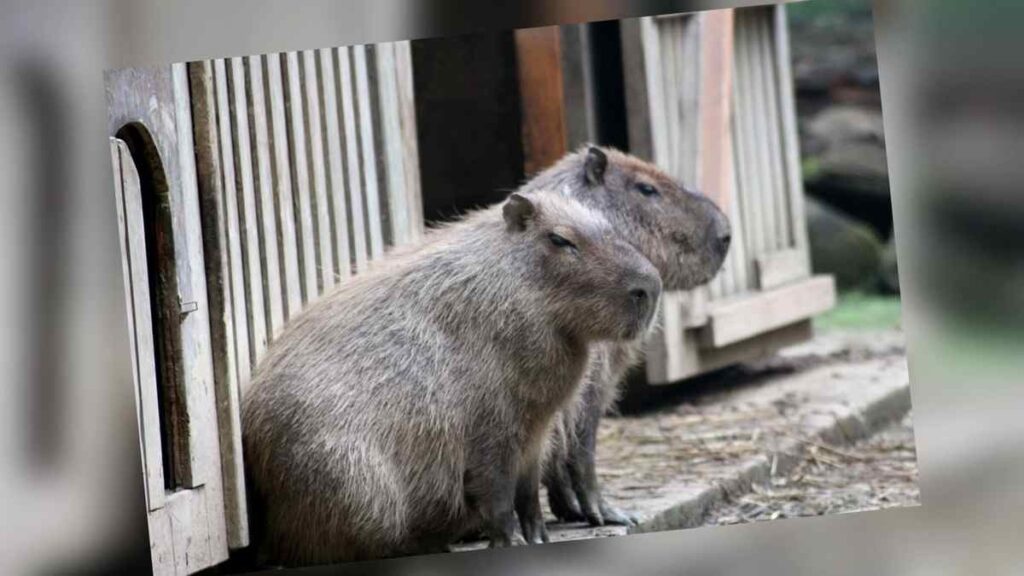
![Capybara Meat And Its Culinary Uses - [Every You Should Know] Capybara Meat & Culinary Uses](https://capybaratips.com/wp-content/uploads/2023/03/Capybara-meat-250x200.webp)
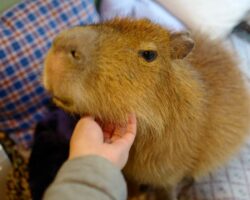
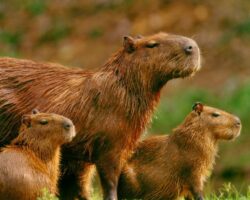
![How Long Do Capybaras Live? - [Answered] How Long Do Capybaras Live](https://capybaratips.com/wp-content/uploads/2023/03/Capybara-Pix-250x200.webp)
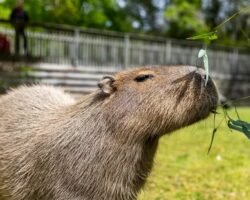
![Why Do Capybaras Not Have Tails? - [Answered] Why Do Capybaras Not Have Tails](https://capybaratips.com/wp-content/uploads/2023/03/Capy-Tail-250x200.webp)
